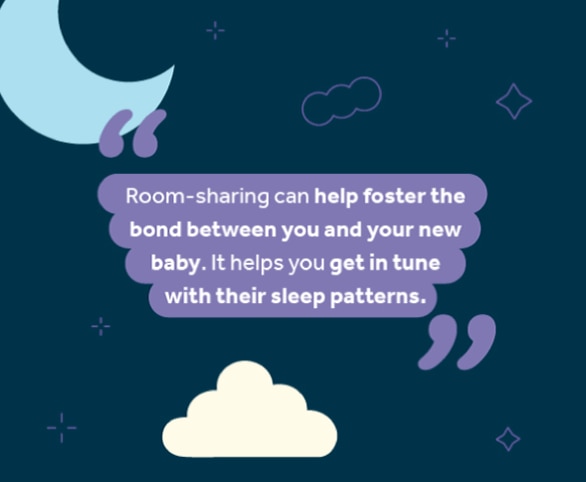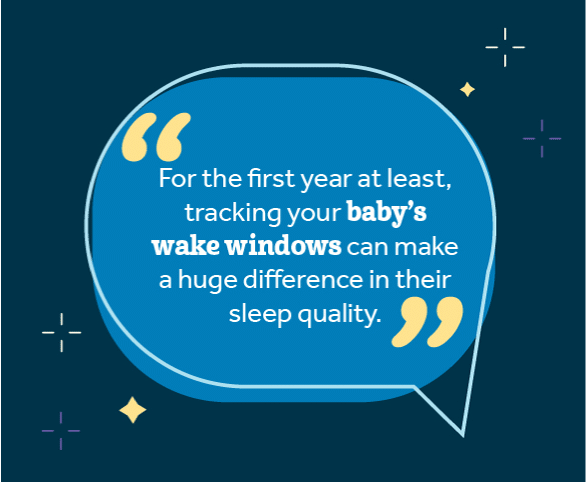As any parent can tell you, some sleep deprivation is inevitable when you have a baby. That's because babies don't sleep the way adults do: they have different needs, and their sleep patterns are in flux throughout their development.
Until that magical day when babies start sleeping reliably through the night, new parents should expect early wake up calls, late-night feedings, and shifting daytime naps.
However, parenting takes energy, and baby is going to need you as well-rested as possible. Think about the wisdom taught on airline flights: you need to fasten your own oxygen mask before attempting to help those around you.
Read on for a few ways to make sure that both you and baby are getting the sleep you need (or at least, as much as possible).
Take a Catnap
Naps! Baby is (hopefully) already a big fan, and you should be too. Napping when baby naps is a great way to make sure that you’re getting at least a couple of hours throughout the day. We know, we know: it's easier said than done. It can be difficult to fall asleep on someone else's schedule, but it’s vital to prioritize your sleep as much as possible. Your body can adjust to daytime napping over time, and it’s worth it.
Even if you can't fully fall asleep, just spending some time in a quiet room with your eyes closed can clear your head and leave you feeling rested regardless of whether you actually drift off to sleep.
Practice Good Sleep Hygiene
If you weren't taking sleep hygiene seriously before becoming a parent, now is the time. Sleep hygiene is basically doing everything in your power to help you fall asleep easily and achieve quality rest.
- It may sound obvious, but don’t drink caffeine before bed. Most experts recommend cutting off caffeine at least six hours before trying to fall asleep, so keep that in mind if you're an afternoon coffee drinker—or have become one since welcoming your little one.
- Darken the room you sleep in, especially if you're taking a daytime nap. Blackout curtains are great, but simply drawing the blinds, turning off the lights, or hanging a towel across your window can help! Eye masks can also contribute to a darker environment without redoing your interior décor.
- Limit screen-time as much as you can, especially a few hours before falling asleep. Unfortunately, scrolling through your phone or tablet in bed can wreak havoc on your sleep quality. It keeps your mind active when it should be winding down, and blue light from your phone has been shown to have a huge impact on our circadian rhythms. Try working on substituting another ritual, such as a paperback or e-book and a cup of tea to unwind, and see if you notice a difference in the quality of your sleep.
- Finally, you should stick (as much as possible) to a sleep schedule. Yes, your little one is going to be the main obstacle to that, but even if you get knocked off schedule, getting back to it as soon as possible can help your internal clock calibrate, allowing you to fall asleep and wake up easier when you need to. Focus on waking up and going to bed at roughly the same time every day, even if you’re taking a nap soon after waking, or up with baby not long before the alarm.
Skip Some Household Chores
As a new parent, you may have to adjust your expectations around cleaning and chores. It's more important right now to be a well-rested and attentive parent than to have a spotless sink or folded sheets. Give that time back to yourself to catch up on sleep or just shut your eyes and not do anything at all. You’ve taken on a huge new role and responsibility in your life — it is totally normal for other responsibilities to give way while you adjust to this new reality.
Keep Baby’s Crib Near Your Bed
Room-sharing, among other benefits, allows you to quickly pop up, tend to baby’s needs, and then get back into bed for (hopefully) some more sleep. It will also help you stay in-tune with baby's sleep patterns over time, making it easier to nap when they nap and get up when they’re up. Whether you’re breast or bottle feeding, room-sharing can decrease the amount of time you spend in action overnight, at a time when every minute of rest matters.
Ask For Help
It’s the oldest trick in the book for a reason. It takes a village to raise a child and you are not a village. Asking for help isn't selfish, it’s necessary. You’re not supposed to “power through” or "tough it out"; you’re supposed to do what’s best for you and baby, and that often means getting some help.
If you have a partner, make sure you're communicating about equitably splitting parenting duties. In addition, look outside of your new nuclear family pod: lean on friends, family, grandparents, and anyone else in your support network, and ask them to do things like picking up groceries, cooking dinner, or doing the dishes. If you have the means, hired help—from a night nurse to a meal delivery service—can also be a great option. It’s not “cheating” and it’s not a sign of weakness—it’s a way to strengthen you and baby during a stressful time.








